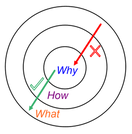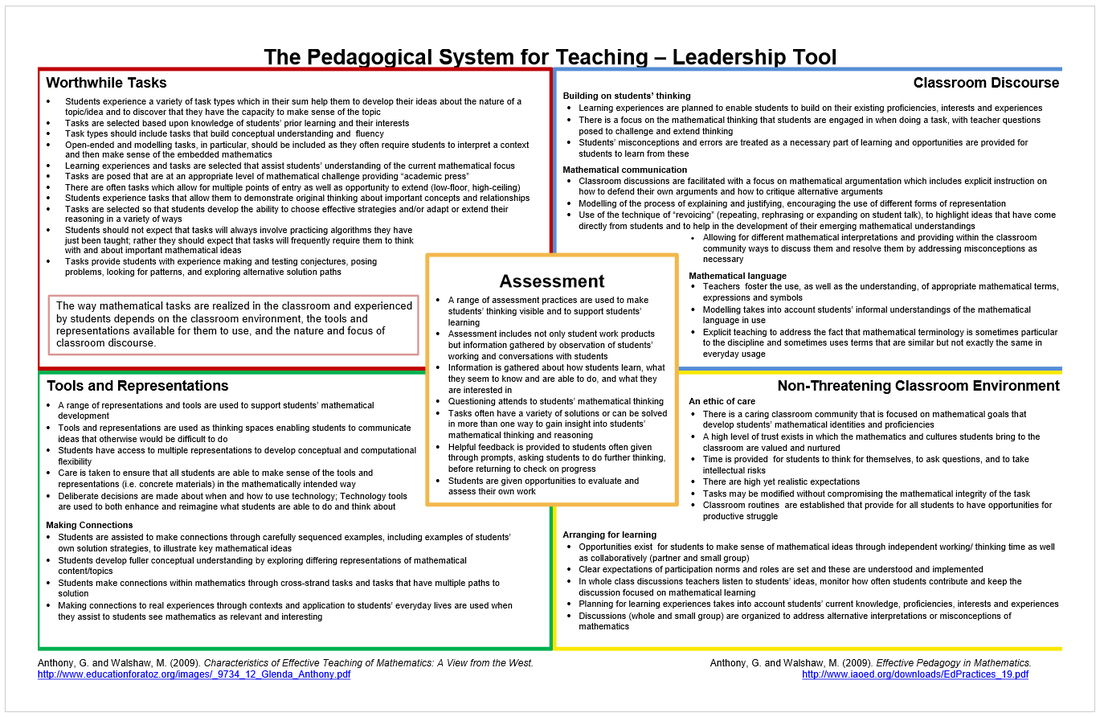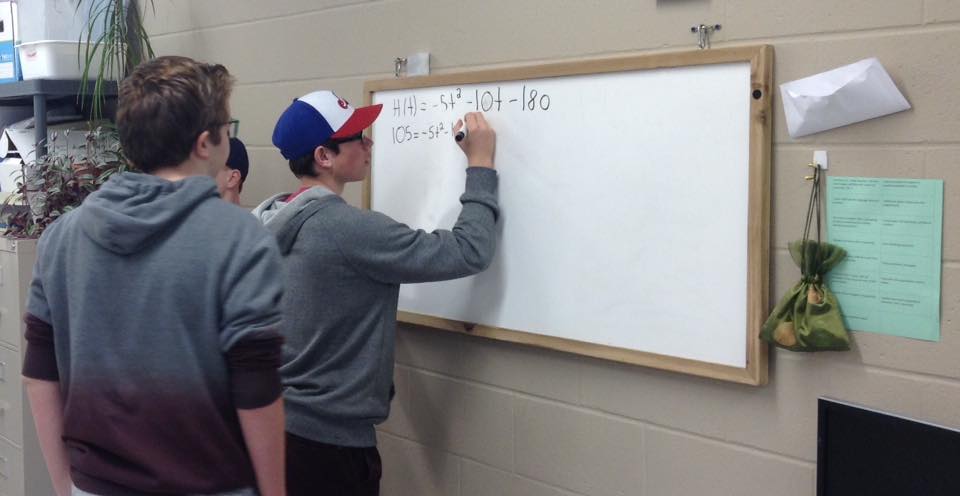Welcome back to Flipping the Focus.
In the last post, you encountered a thinking framework or theory of action that not only identified a deep sense of purpose and passion, but also highlighted how to deliver on its values and sample tools to do so. Today's post builds upon the last, providing individual practitioners, schools and districts another framework that can be leveraged for continuous improvement to student achievement, well-being and equity.
To begin, let's review a concept from the world of business and marketing that can be re-purposed to implementation and monitoring for system-wide improvement: the "Golden Circle."
Here are a couple of prompts to get the discussion going:
i-What are your takeaways (affirmations, learning)? What's important for you to carry forward?
ii-What are you wondering?
In education, school and district goals constitute a larger, grand sense of purpose for improving achievement, well-being and equity (our 'Why'), but the real opportunity for improvement comes through our work to addressing the 'How.'
For example, if a district goal is to have most classes engaging in making their thinking visible (i.e., strategy for getting to improvement), then there must be a plan and process developed and addressed in an ongoing manner for addressing 'How.'
As a leader, it's critical that we connect with our team members, by doing the work <=> learn by doing and that we help by connecting members of the team. In essence, we are culturing a learning community and a community of learners for school improvement.
Using frameworks for collaborative study and action-based/classroom-embedded activities is a means (i.e., 'What') by which we can occasion thinking about our plans and actions--i.e., assessing our moves and reflecting to inform next steps to meeting goals. Collaboratively planning, acting, assessing and reflecting, in a cyclical manner, are key components to the 'How' of school improvement (diagrammed, below).
To help frame and lead conversations concerning the various aspects of your 'How' (i.e., getting to reflection of cyclical improvement process), we require 1) research-informed information that we can relate to practice ('Act' of cyclical improvement process), 2) collaborative learning activities for professional practice ('Act'), and 3) actions and tools to help monitor our progress (i.e., we need to have data to lead conversations about student learning and well-being; 'Assess' of cyclical improvement process).
For example, there is a plethora of research-informed resources that can be used to help facilitate group and individual, professional learning in Mathematics. Below, you'll see and have access to an interactive infographic that highlights current, key researchers and resources to pay attention to during your collaborative study. To access these sources, hover over the various areas of the graphic and click to access the embedded links.
In short, I would recommend that you begin by examining the resources connected to the "Pedagogical System." From here, you have several choices dependent upon your team's chosen area of study (Caveat 1: Much like you'll uncover with the Pedagogical System, there is interdependency for these areas of study).
With "Visible Learning," you have the opportunity to review practices that have the most impact upon teaching & learning--classroom discourse, self-assessment, and teacher clarity are examples of strategies that have higher effect sizes. Professor John Hattie (below) speaks extensively about learning goals (i.e., intentions, targets) and success criteria. He explains that learning goals are not about 'the task' and that success is not what happens at the end of a learning period. In fact, students need to create success criteria, as supported by their teacher. Further to this need, Hattie also identifies that it is important for students to develop conceptual understanding in math, then to apply strategies for efficiency. As a means of developing understanding, teachers are more likely to name-and-notice strategies for/with their students--i.e., strategies that can be applied for efficiency. As far as pedagogical practice is concerned, pre-tasks are key to understanding students' prior knowledge so that you can start anticipating what success can look like for students. Student success can be made visible early on, and you'll find that you'll need to vary your strategies to determine if students authentically understand and can demonstrate their learning.
In mathematical communities of practice (Caveat 2: You will find that much of the pedagogical knowledge and practical 'moves' in, and in extension to, this post apply to all communities of practice), "Thinking Classroom" frameworks are growing, not only in popularity, but in their effect/impact upon the teaching and learning of Mathematics. I would highly recommend that you explore the possibility of beginning with some of Dr. Peter Liljedahl's 1st Year/Stage elements of thinking classroom design in your school(s)/district.
To help facilitate meaning-making in your thinking classrooms, take a look at the "5 Practices for Orchestrating Productive Mathematics Discussions." Within this resource, you'll not only find good reason(s) for facilitating problem-based learning, but you'll also have access to some examples from teacher practice (Caveat 3: Embed the "5 Practices," "Thinking Classrooms," and "Classroom Discourse" into your improvement practices such that you're better able to address the interdependent attributes of the Pedagogical System).
Lastly, as a 'glue' that binds all things pedagogical, and I would argue as also helping us to maintain 'flow' in our own learning, are our formative assessment practices. To inform your formative assessment practices, take a close look at pages 33 to 36 of Ontario's Growing Success document, as well as the visual graphic provided from the #ucdsbmath "Assessment Loop", as you study the document. And in your leadership practices related to keeping the various aspects of your engagement of the Pedagogical System 'in play,' the following SIM K to 12 graphic (below; pdf for download) lends itself well to inviting reflection to formative assessment practices.
| the_pedagogical_system_leadership_tool.pdf |
Up to now, your school/district is well under way having identified an improvement goal, reflected upon data (including perceptual data), and is beginning/continuing to enact a cyclical plan to studying together. With the information provided in the previous section, what methods/activities are available to you and your teams for facilitating collaborative forms of study?
The document, below (pdf; available for download), is a synthesis of a #ucdsbmath document used during system-wide RMS (Renewed Math Strategy) study and Collaborative Professionalism
(Ministry of Education-Ontario PPM-159; further expounded by Dr. Lyn Sharatt). Exemplifying collaborative professionalism through leadership means that we are knowledgeable/know how learning happens, are able to mobilize knowledge/learning, and work to sustain growth incurred by collective efforts. There are a variety of activities that we can use to engage one another in collaborative learning, but I would put forth that we need to lean more into working with those that can sustain growth in our schools/districts. By examining the document, you'll notice that I've labeled the last two options--Leadership for Monitoring Team Learning & Leadership for Learning Team Practices--as being Growing-Sustaining factors.
| sample_collaborative_learning_activities.pdf |
As you embark on exploring pedagogical practice, it's important that we do so with others. As mentioned in the section, above, collective development and sustaining growth as a team/school/district occurs when we can collaboratively monitor our progress. At the classroom level, this would look like documenting student thinking and re-purposing that documentation to helping students move their learning forward. At the school level, this process might involve a group (or groups) of practitioners cultivating and re-purposing student thinking, as elicited by exploring an agreed-upon pedagogical strategy, to planning next steps in the team's approach to helping students improve learning outcomes and minimizing variation within the school. Further along--i.e., in consideration of scale--districts can also follow the same process by engaging their schools in exploring and documenting efforts to solving a challenge to practice, co-facilitating data-lead conversations of school-level processes, and encouraging reflection and mobilizing findings to their district for helping to inform next steps at the school-level.
Despite challenges of scale, there is a great deal of congruence in the patterns and processes to improving teaching & learning. As far as collaborative activities are concerned, what you'll notice as being a unifying construct for moving any and all groups forward can be those practices that I've highlighted as being Growing-Sustaining--i.e., Leadership for Monitoring & Leadership for Team Practices.
As your team(s) begin(s) to explore challenges to practice with one another, students, and other teams (networked learning), a framework that can engage the interdependent attributes of the Pedagogical System and guide year(+)-long collaborative inquiries into improving student learning is that of a Thinking Classroom.
The document (pdf, below; available for download) I am providing represents a synthesis of both Pedagogical System and Thinking Classroom (Dr. Peter Liljedahl, Simon Fraser University) attributes. The thinking classroom elements serve the Pedagogical System, and although this tool has been organized as a 'checklist,' this list needs to be occasioned as criteria for success. That is, there is ample room for practitioners, teams, and districts to incorporate a variety of strategies to meeting these criteria.
By enacting a cycle of inquiry, with strategies (the 'What') aimed at students' occasioning thinking, you'll be engaging the Pedagogical System. And by documenting your process and assessing in relation to these criteria for success, your data-lead reflections will point to next steps for moving improvement efforts forward.
| school_improvement_through_a_thinking_classroom_–_professional_learning_template_for_learning_teams__mathematics_.pdf |
If you examine John Hattie's list of effect sizes, you'll see that classroom discourse is reported to have an effect size of 0.82. In short, any strategy with effect size 0.40 is expected to occur with respect to maturation (i.e., with one year of learning). Thus, culturing a safe, discursive environment (albeit not the only teaching strategy being used, as the interdependency of high-yield strategies better serves students) has the potential for closing gaps in learning (e.g., the equivalent of two years of learning).
You'll also notice that both the thinking classroom framework and pedagogical system have significant and important reliance upon student discourse. To further help your team in addressing the 'What' of their improvement practices, I would encourage you to consider exploring developing accountable discourse with your students. Below, I've provided a synthesis of resources (Lucy West, "5 Practices to...," NCTM) into the form of a tool that I've also tried (implemented and assessed with students) within my own teaching practice (pdf; available for download).
| srg_math_talk_observation_checklist.pdf |
An Emergent Leader: Growing Your Leadership
Throughout this post, I've use the word leadership. Typically, in an educational context, our minds might tend to think about our school-level leaders (principals and vice-principals). Not all that long ago, my system-level principal explained that you can lead no matter your position in the 'line-up'. If you're reading this post, and find yourself not in a leadership role, think again: you are, by informal nature, an emergent leader (ASCD) and you have lots of room to engage the pedagogical system in your own/team's/school's improvement practices--collectively setting goals and disciplining ourselves to occasioning collaborative work on an ongoing basis.
According to the Association for Supervision and Curriculum Development (ASCD),...
-If you are more concerned about the journey towards a goal, rather than the goal itself, you are emerging in leadership.
-If you carve out your own path, inquiring as you go, you are an emerging leader.
-If you desire to work with others with varied backgrounds...each of you passionate and driven to improving achievement, equity and well-being for students in your school/district/province, you are an emerging leader.
-And if desire to serve others for the public good, you are an emerging leader. I hope that you are finding the information in this post helpful and that you will return to it, as you are looking to carve out a place in your school/district to lead as a collaborative professional. Remember: We need you to lead us (Seth Godin, Tribes).
Building & Supporting Your Professional Network: Getting Connected
As emerging leaders, remember that there are practitioners in various locations and in various roles who have a strong desire to frame their work through school improvement processes. What they have uncovered is that learning on behalf of others (Steven Katz & Lisa Ain Dack, Intentional Interruption: Breaking Down Learning Barriers to Transform Professional Practice) is a powerful means to growing collective capacity--i.e., growing both the confidence and efficacy to enact their collaborative professionalism to, as Seth Godin might say, motivate, connect and leverage the team members of their 'tribe.'
In conjunction to what you're doing individually and/or at the school level, getting connected to others of this 'tribe' might be as simple as following a particular hashtag (#) on Twitter and/or participating in on-line discussions (e.g., Twitterchats, commenting through this blog). You might also consider creating a backchannel to discussions you’re having in your own district. And if you're looking to connect with a smaller group of practitioners within and beyond your current location and/or role, I would invite you to consider registering with the Professional Learning Network (PLN) Finder (link/button, below; Form Results link to connect with other registrants).
If you'd like to start out by considering a more personalized interaction with Flipping the Focus, you can also connect via email (see the contact form, end of page). NEW to Flipping the Focus is a booking tool (Flipped PL) for professional learning experiences. Click on the link/button, below ("Book Now") to be re-directed to registering for your next professional learning event/experience.
In closing, I hope that you have not only found this post informative but supportive towards how you can better address your face-to-face time with students, colleagues, and/or network partners, as you engage in exploring school improvement practices that can be potential 'game-changers' for student achievement, equity and well-being.
Be sure to check the blog and/or website, periodically, for an advisory regarding a depository of the several tools & resources mentioned here (AND for a series of new tools) to help you in your instructional leadership journey with and towards school improvement.
Professionally Yours,
Chris Stewart, OCT
Learning Partner, Upper Canada District School Board
Founder & Educational Consultant, Flipping the Focus (copyright, 2018)





 RSS Feed
RSS Feed


